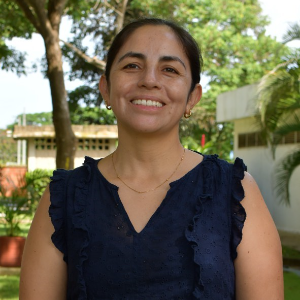Title : Effect of phosphate on arsenate and monothioarsenate uptake in plants under hydroponic conditions
Abstract:
Monothioarsenate (MTA) is a newly discovered arsenic (As) compound that can be formed under reduced sulfur conditions, mainly in paddy soil pore waters. It is structurally similar to arsenate As(V) and inorganic phosphate (Pi), which is taken up through phosphate transporters. Due to the similarity between As(V) and Pi, As(V) enters into plants instead of Pi. The important role played by phytochelatin (PC), glutathione (GSH), and the PC-vacuolar transporters ABCC1 and ABCC2 under As stress in plants is well known. However, the plant uptake and mechanisms surrounding MTA still have not been completely addressed. This investigation was divided in two stages: First, several hydroponic assays were set up to establish the sensibility-tolerance of wild-type Arabidopsis thaliana (accession Columbia-0, Col-0). Then Col-0 was used as a control plant to evaluate the effects of As(V) or MTA in (PC)-deficient mutant (cad1– 3), glutathione biosynthesis mutant (cad2), and PC transport (abcc1-2). The inhibitory concentration (IC50) root length was calculated for both As species. According to the results, both arsenic species (As(V) and MTA) exhibited high toxicity for the genotypes evaluated. This could mean that these mechanisms play a constitutive role in MTA detoxification. Second, for the Pi-MTA and As(V)-Pi competition assays, a series of experiments on hydroponic seedlings of A. thaliana were carried out using Col-0 and a pht1;1. The plants were grown under increasing Pi concentrations (10 μM, 0.1 mM, or 1 mM) at 10 μM As(V) or 50 μM MTA. The total As concentration in the roots was significantly lower in plants exposed to MTA, there being less As content in the pht1;1 mutant at the lowest Pi concentrations tested compared with the As(V)/Pi treatments. In addition, a higher rate of As translocation from the roots to the shoots under MTA was observed in comparison to the As(V)-treatments.
Audience Take-Away:
The research on monothioarsenate (MTA) and its interaction with plants, specifically Arabidopsis thaliana, provides valuable insights that can be applied in several ways. First, it enhances the understanding of MTA detoxification mechanisms in plants, which can be particularly useful for researchers, students, and professionals in the fields of plant biology, environmental science, and agriculture. This knowledge can aid in the development of more efficient strategies for managing arsenic contamination in crops and soil, which is crucial for ensuring food safety. Additionally, the research could serve as a foundation for further investigations and teaching purposes, offering a platform for faculty members to expand their research or develop educational content. In a practical sense, the findings may simplify the work of designers in the development of arsenic- resistant plant varieties, potentially improving crop accuracy, yield, and overall agricultural efficiency. The research's benefits extend to environmental preservation, agricultural sustainability, and food security, making it a valuable resource for a wide range of stakeholders.



